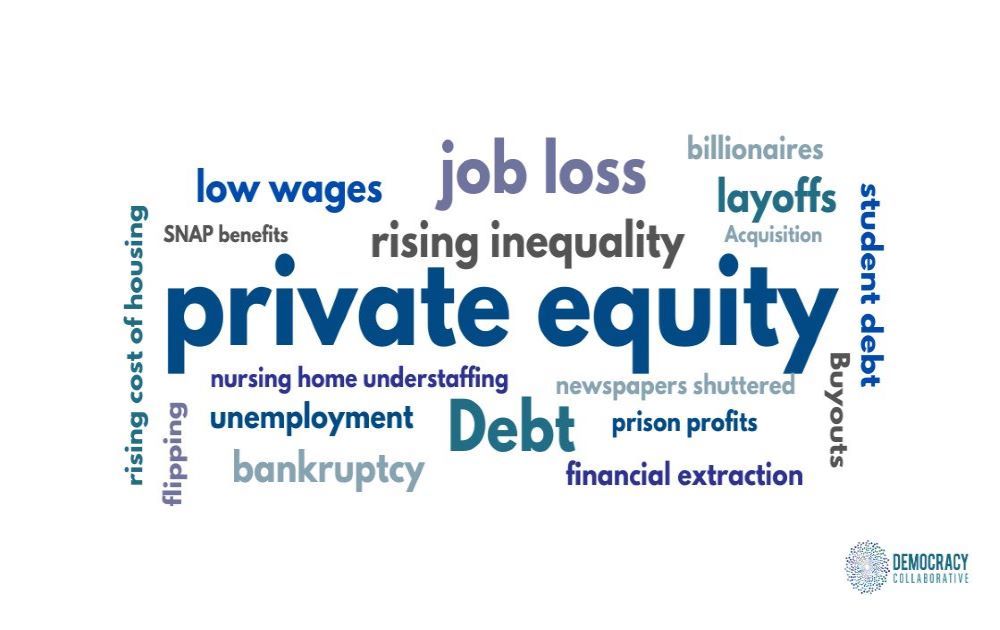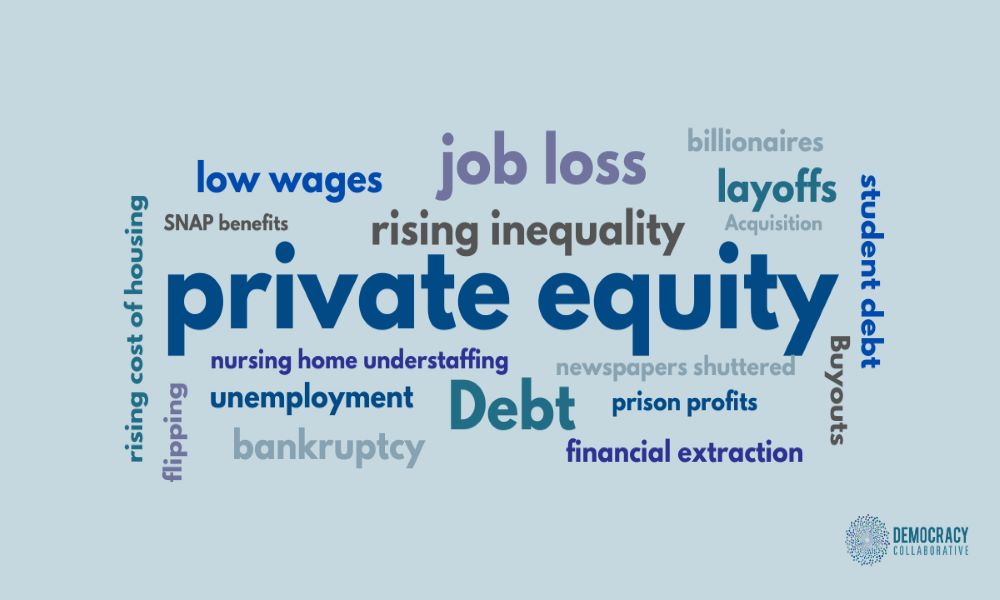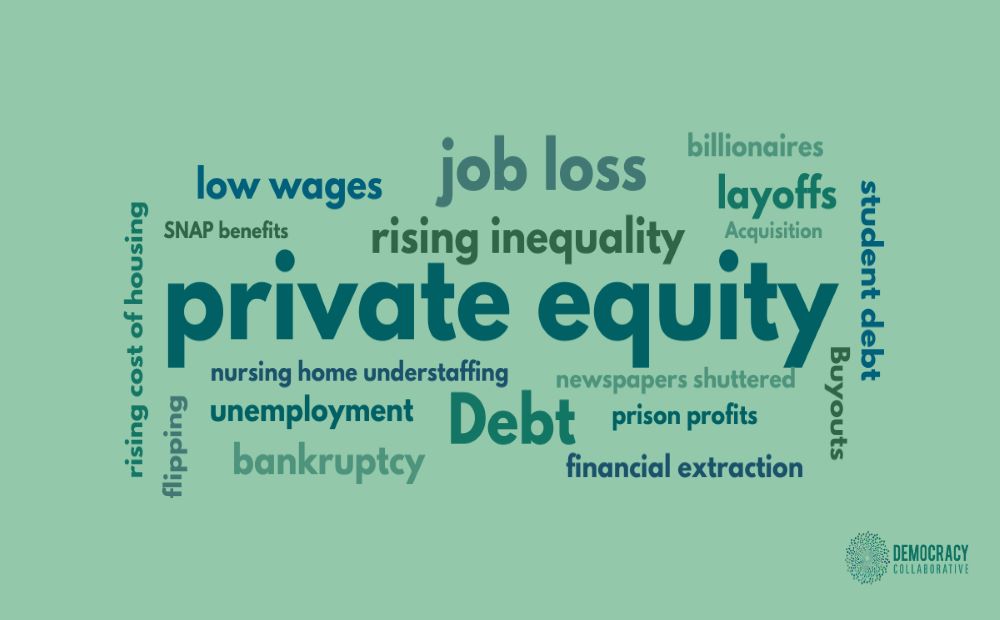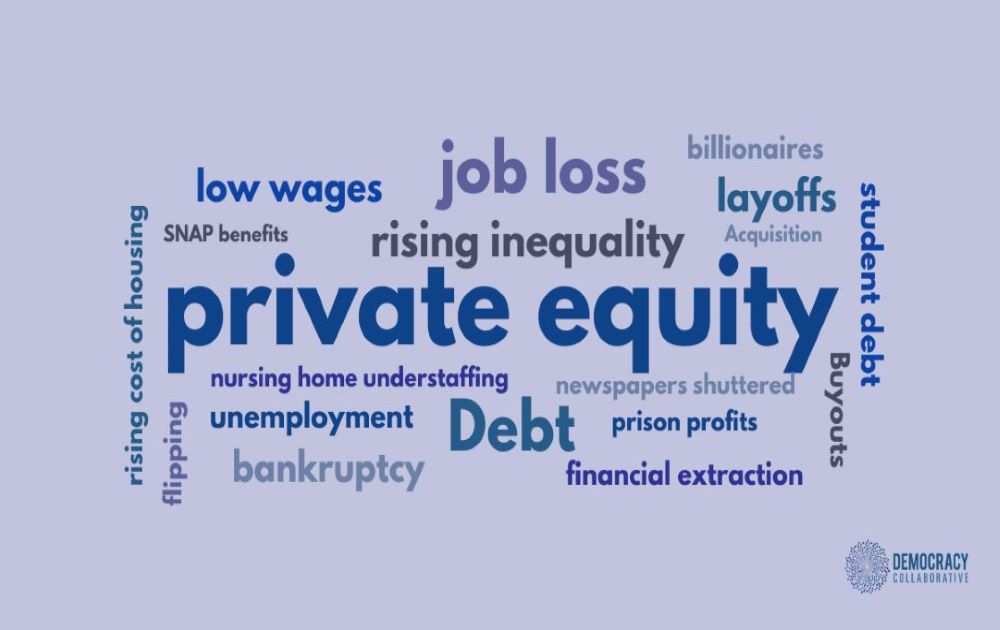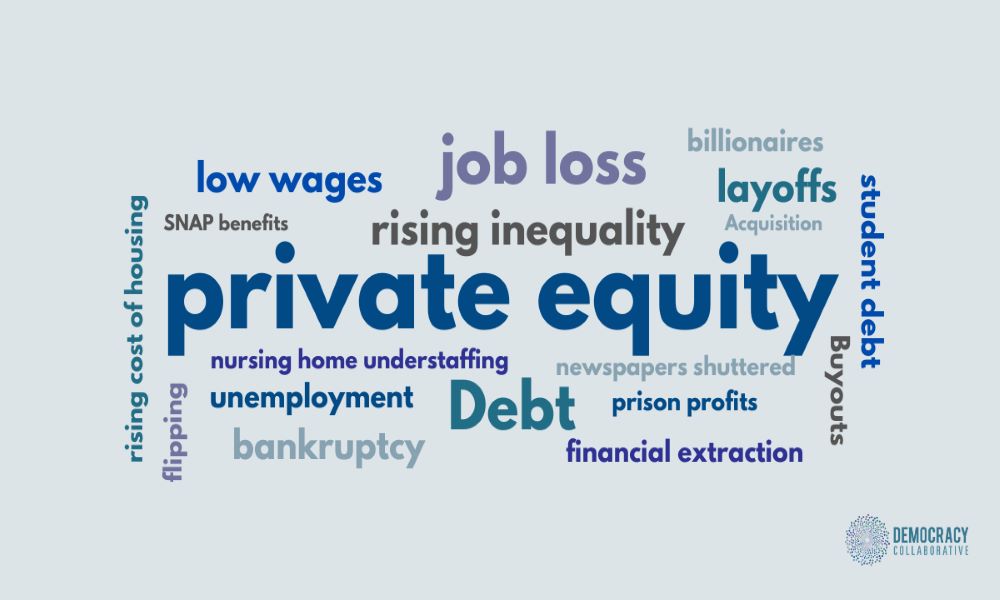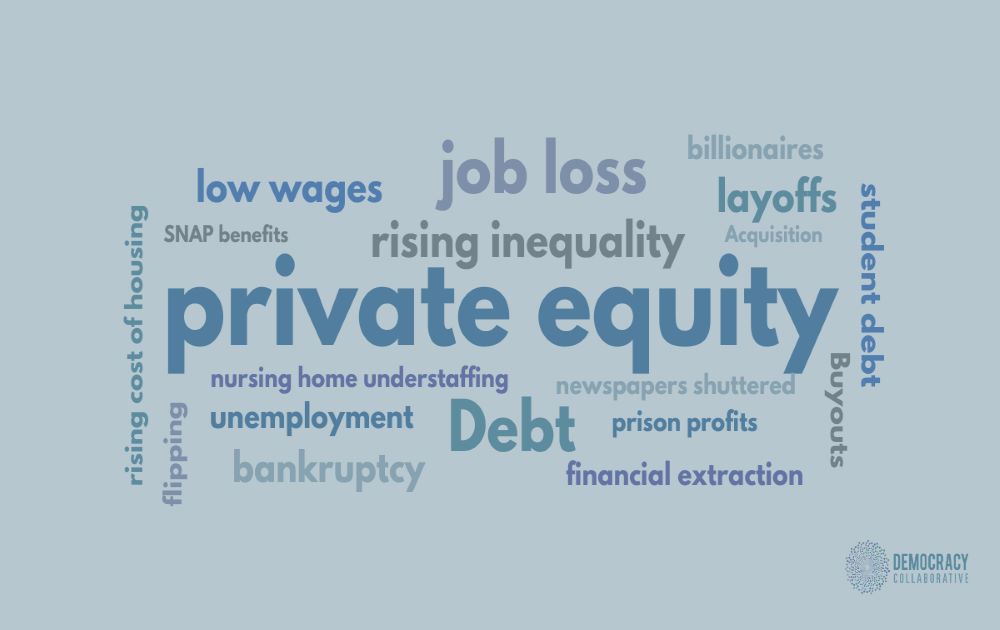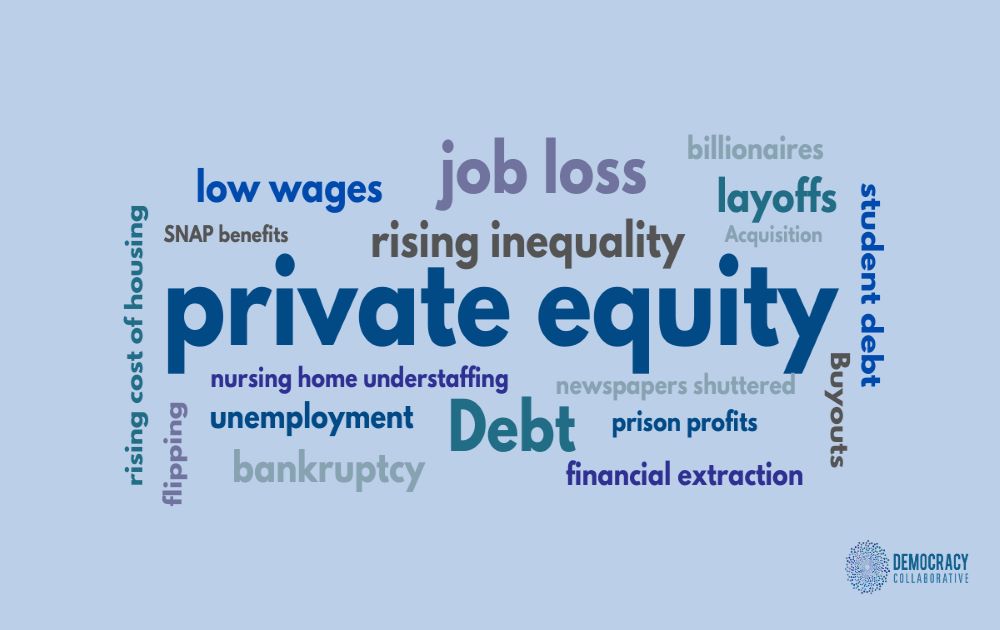Karen Kahn and Marjorie Kelly spoke with Delilah Rothenberg, co-founder and executive director of the Predistribution Initiative, about the ways in which the private equity model drives inequality.
Delilah Rothenberg has been interested in Pete Stavros’ model for sharing equity with all workers for some time. A few years ago, when she first heard about it, she looked at KKR’s 2017 sustainability report, where KKR talked about several portfolio companies where they had distributed shares more broadly. When she did the math, she found workers were receiving equity grants averaging about $25,000 while KKR’s general partners were taking home more than $100 million each in annual compensation.
This gave her pause, because clearly this strategy alone is not going to solve the problem of wealth inequality, which is highly destabilizing.
As long as the wealth of GPs grows exponentially faster than that of everyone else, economic inequality will continue to grow.
Not a solution to wealth inequality and associated risks
Rothenberg pointed out that as long as the wealth of GPs grows exponentially faster than that of everyone else, economic inequality will continue to grow. When wealth pools to a very few people at the top, those people are in a position to buy up assets—e.g., equities and real estate—thereby pushing up the asset values, or prices. The barriers to entry to invest, therefore, become much higher for everyone else.
That concentration of wealth gives that handful of people enormous power, which they use to accumulate more wealth and even influence public policy—including decisions made about redistribution. That vast inequality is a systemic risk to the economy and a systematic risk to markets and portfolios. Limited partners, the investors in private equity funds (e.g., pension funds, insurance companies, philanthropic endowments) need to understand that. This employee ownership program may not be reducing risk in any significant way. Why?
This employee ownership program may not be reducing market risks in any significant way, says Rothenberg. Limited partners need to understand that.
Rothenberg highlighted how numerous economists agree that inequality at the scale we see today causes “secular stagnation”—i.e., little or no economic growth. When a few people have extraordinary wealth, their marginal propensity to spend is less. (People who are poor generally spend most or all their money to survive, while those who are very rich save much of what they have because there is no way to spend it all.) The very rich then typically lend their excess wealth to others to spend and that can lead to credit crises—e.g., the Great Recession in 2008—as well as to perpetually low interest rates. Low interest rates are not good for investors and ironically incentivize more risk taking in markets, which can trigger further financial crises.
Individual workers certainly benefit from receiving equity, says Rothenberg, but shared equity at this level will not solve the bigger problem: we shouldn’t be creating these systemic risks.
Greater transparency needed
For Ownership Works, Rothenberg would like to see greater transparency, so that we can assess the strategy overall, particularly within the context of the entire economy and how tilted it currently is to the very wealthy. Can this program make a difference? To answer that, we need to understand the equity model being used. How is it structured? Does it impact the earnings of GPs? What are the standards to avoid unintended negative consequences? What are the benefits and risks of shared ownership versus profit sharing? Will the GPs implement other reforms that give workers a voice in decision-making? (Typically, private equity has been very top down and anti-union). Are the GPs willing to look at compensation ratios?
No doubt, having private equity embrace employee ownership—or at least a form of broad-based profit sharing—is a good thing. It is a step in the right direction, but it is only a small piece of the puzzle. We cannot see this as THE SOLUTION and get complacent. More needs to be done to address inequality and worker well-being.
Read our entire series on Ownership Works and the impact of private equity on the employee ownership field.
Is Private Equity about to Co-opt Employee Ownership?
What the launch of the nonprofit Ownership Works could mean to the employee ownership movement.
Continue Reading Is Private Equity about to Co-opt Employee Ownership?
Are the Barbarians at the Gate?
Part 1: Can private equity be trusted to prioritize worker benefit?
Ian MacFarlane: Can we call this “employee ownership”?
It seems they’re doing what big capital does: take over a concept like employee ownership and make it their own in order to make more money.
Continue Reading Ian MacFarlane: Can we call this “employee ownership”?
Jim Bonham: Enter the Dragon?
Making modest investments to a non-profit in order to take shelter from the negative public sentiment resulting from the massive and growing wealth inequality in America is a cheap way to diffuse heat.
Are the Barbarians at the Gate?
Part 2: If equity shares increase workers’ productivity, who benefits?
Ian Mohler: A Piece of the Pie Is Better than No Slice at All
Offering equity to workers is a good thing, and we can argue later about what share of the pie is most appropriate.
Continue Reading Ian Mohler: A Piece of the Pie Is Better than No Slice at All
Are the Barbarians at the Gate?
Part 3: Is this real employee ownership?
Joseph Cureton: Success is more than an increase in financial value
I see this as an opening, an opportunity for the idea of worker ownership to become more mainstream.
Continue Reading Joseph Cureton: Success is more than an increase in financial value
Andrea Armeni: An Opportunity to Spur Deep Structural Change
Ownership Works can be a conversation starter and spur conversations about who is creating the value and who should capture it.
Continue Reading Andrea Armeni: An Opportunity to Spur Deep Structural Change
Andrea Dehlendorf: Working with Private Equity to Make Jobs Better
Americans need to better understand the role of Wall Street and private equity in our economy.
Continue Reading Andrea Dehlendorf: Working with Private Equity to Make Jobs Better
Will Equity Shares Improve Outcomes for Workers?
This seems like a time of messy growth for employee ownership.
Continue Reading Will Equity Shares Improve Outcomes for Workers?
To follow Employee Ownership News, subscribe to our newsletter.
